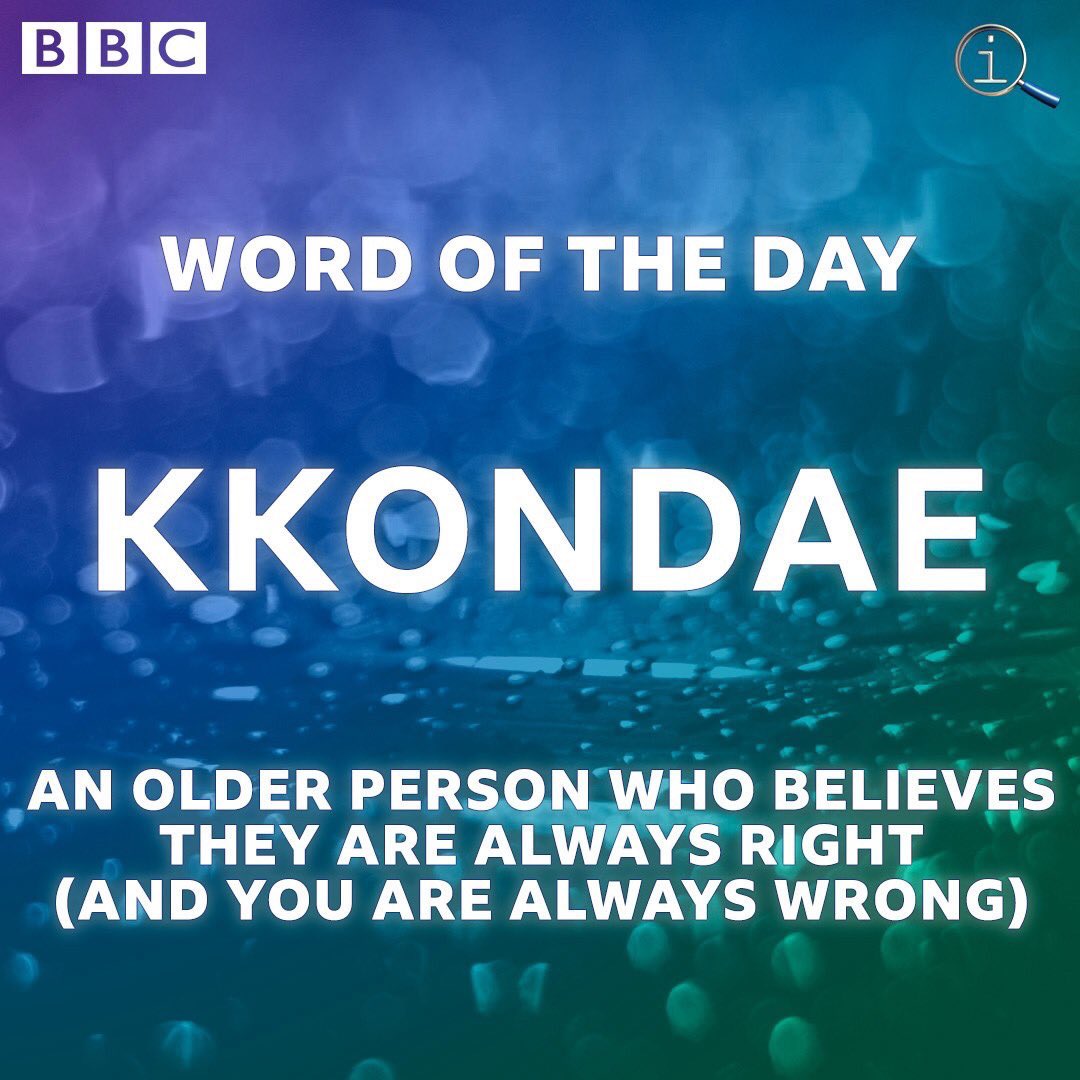Wednesday, March 4, 2020
'Kkondae' A Word We Don't Want To Hear
In the recent Bible And Life magazine, three articles were concerned with the meaning of the word 'Kkondae' often heard within Korean society. A word directed to the elderly by the young. One of the articles wanted to help the readers avoid being called a 'Kkondae'. It's a slang word that seems to have taken on different meanings with time and at present, it's a word we don't want to hear addressed to us.
It is not easy to translate into English but we have words that describe what young Koreans would understand to be included: showoff, egotist, bragger, arrogant, condescending, high and mighty, haughty. In the list of the seven capital sins, we would place it in the first place as pride.
One of the articles written by a priest counselor finds the task far from easy; both from his own life and those that he has counseled over the years. He sees it as an elderly person who is not behaving wisely. They are seen as immature by the young and addressed sarcastically as 'Kkondae'.
His first example is one who assumes airs about his younger years and fires off what he has done. Those who speak in this way feel superior but those listening feel disgraced and seeing the situation of the older person makes fun of him. Because of their feelings of inferiority, those behaving like a 'Kkondae' try to compensate by boasting. This kind of person is not one prepared to do favors for others.
The second are those that want to be respected for their age. They are all 'Kkondae'. Those with ability don't think of their age. They don't wait for others to respect them but the 'Kkondae' even if not old gets angry when respect is not shown.
The third type is the worst. They don't listen to others and want to be heard. It's always for the benefit of the other, they make sure to add. The presence of this type of 'Kkondae' is always tedious on the young. All the words expressed are correct, hearing them they feel a revulsion having heard them so often.
Why does one become a 'Kkondae'? The writer says it is a lack of eye awareness, intuitive situational awareness or probably the best translation would be common sense. Briefly, the 'Kkondae' lacks this common sense when dealing with the young. They are not able to read the mind of the young.
He concludes the article with a checklist, the more you check the greater degree of 'Kkondae' behavior. Even checking one of them does mean that you have a touch of 'Kkondae'.
1) Seeing the efforts of civil servants these days they have a lack of a challenging spirit.
2) We always need to obey the words of those who are in a position of authority.
3) Meeting a person for the first time I need to know his age and education level to feel comfortable.
4) I am upset when a younger person comes in late.
5) I get angry when eating with young people if everything is not in proper order.
6) I often use the expression 'when I was your age'.
7) I speak impolitely to people in stores and when shopping.
8) What do young people know? Do I think this way at times?
9) When the young are demonstrating against some issue do I feel that they are not acting properly?
10) Do I agree that the older we get the wiser we become?
11) Do I seek to teach a younger person when they do something different, my way of doing things?
12) When I ask someone to give their opinion do I step in and give my opinion.
13) Do I always feel that as an older person I have something to say?
14) Do I get angry when a younger person disagrees with me?
Subscribe to:
Comments (Atom)
